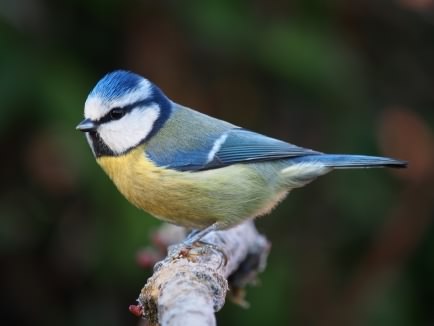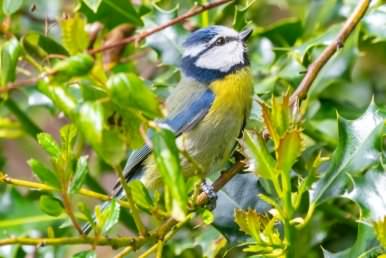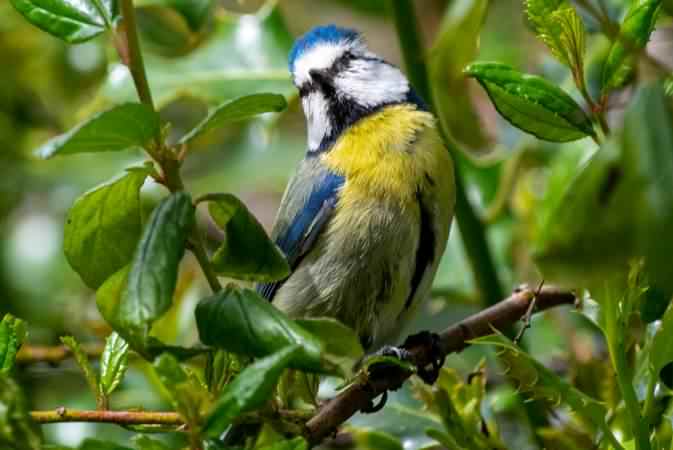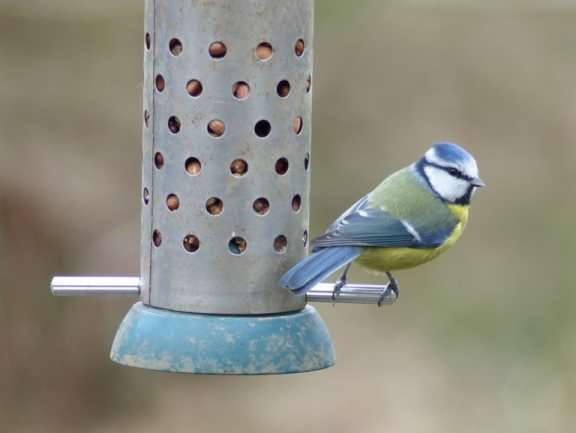
Photo ©2015 Francis Franklin
Click any photo for a larger image
Blue Tit - Cyanistes caeruleus
Syn. – Parus caeruleus
Family - Paridae

Photo ©2015 Francis Franklin
Click any photo for a larger image
The Blue Tit is a resident common bird in the UK and Europe growing to a length of 11–14cm (4–5.5in) and wingspan of 18cm (7in) with a yellow chest, light green back and wings with a white bar that are blue at the shoulder to dark grey or black at the tip. The head is blue on top, with white sides and a dark blue–black ring around the lower neck, and black eye and chin stripes. It is widely distributed across much of Europe, building its nest in hollow trees, pipes and other crevices in both town and country areas, frequenting mixed deciduous woodlands with a high proportion of oak.
During April and May they lay a clutch of up to 16 white eggs heavily speckled with rust coloured patches in a nest formed from moss, wool, hair and feathers, which they brood for about two weeks. The young are fed mainly on caterpillars, insects, larvae and seeds. Breeding pairs over winter together in large flocks, commonly with other tit species.
An intelligent species, Blue Tits once had a reputation for raiding milk bottles for the cream top. Modern milk production and packaging along with the reduction in door step milk delivery has put paid to the discovery that your milk bottle had been "raided" early in the morning. Blue tits are predated by Sparrowhawks, Jays and domestic cats, whilst Squirrels raid the nest for eggs.
 Photo ©2020 Colin Varndell |
 Photo ©2020 Colin Varndell |
 Photo ©2015 Simon J. Tonge |
Site design ©1999– Brickfields Country Park - Privacy -